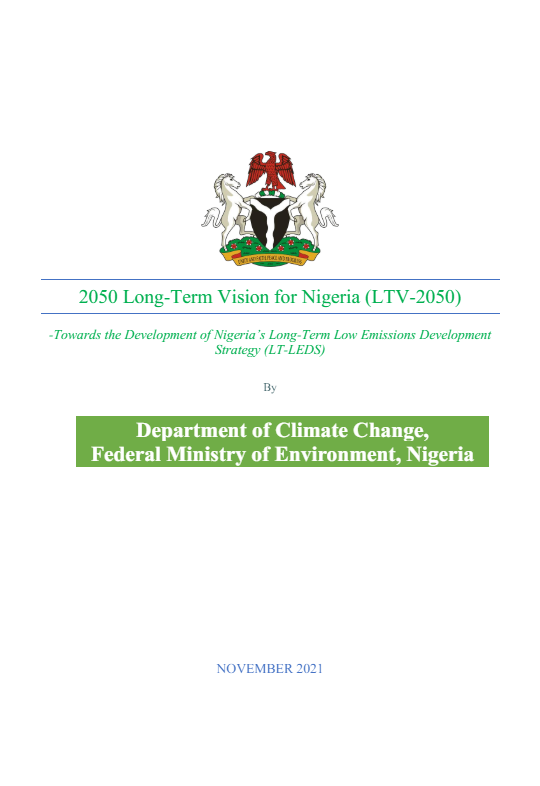The “2050 Long-Term Vision for Nigeria (LTV-2050)” document likely outlines Nigeria’s strategic approach and aspirations for sustainable development, climate resilience, and low-carbon growth by the mid-21st century. While I can’t access current documents directly, a document with this title would typically serve as a comprehensive framework, guiding the country’s development policies and climate action plans over the next three decades. It would be designed to align with the United Nations Framework Convention on Climate Change (UNFCCC) objectives, the Paris Agreement’s long-term goals, and the Sustainable Development Goals (SDGs).
The LTV-2050 detailed scenarios and pathways for achieving net-zero greenhouse gas emissions, enhancing economic growth, and ensuring social inclusivity. Key focus areas include energy transition, industrial development, agriculture modernization, infrastructure resilience, and ecosystem conservation, all underpinned by innovative technologies and sustainable practices. The vision emphasized the importance of a just transition, ensuring that climate action creates jobs, improves living standards, and addresses inequality.
This document is critical for investors, policymakers, researchers, and the international community, providing insight into Nigeria’s long-term strategy for climate and development. It outlined the policies, investments, and partnerships needed to turn this vision into reality, ensuring Nigeria’s growth is resilient and sustainable in the face of global climate challenges.
For stakeholders involved in Nigeria’s development and climate action efforts, the LTV-2050 would serve as a guiding star for planning, collaboration, and measurement of progress towards a sustainable and prosperous future.

